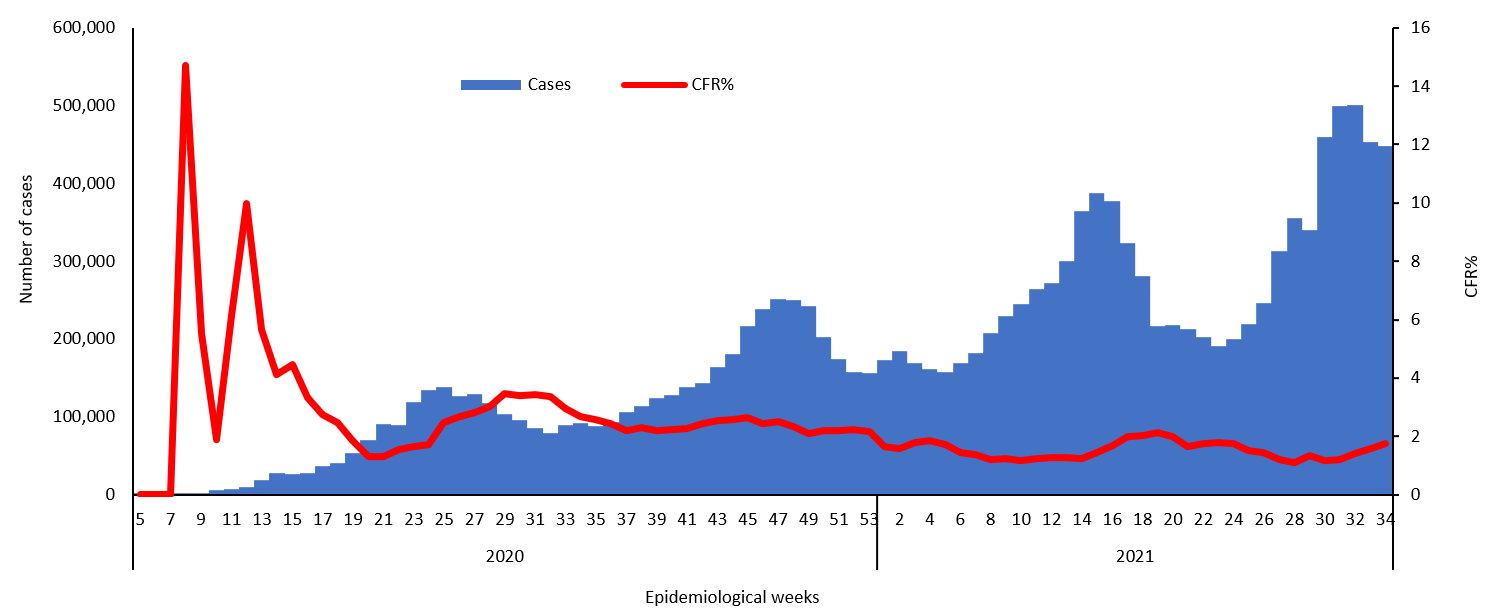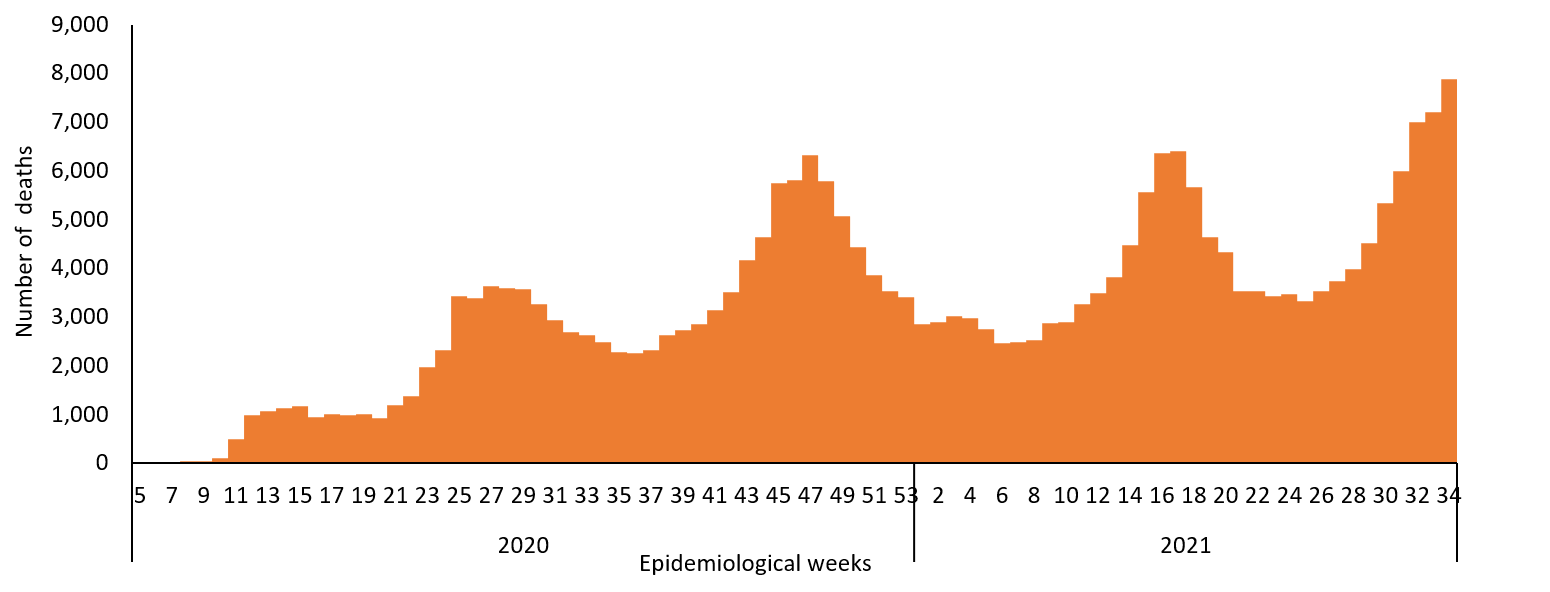The coronavirus disease COVID-19 continues to spread at the regional and global levels. As of 28 August 2021, the global cumulative incidence reached 215 246 703 reported cases and 4 482 515 associated deaths with a case fatality ratio (CFR) of 2.1%. Meanwhile, the 22 countries of the Eastern Mediterranean Region (EMR) have reported a total of 14 510 758 cases, which represent about 6.7% of the global count, with 264 660 associated deaths (CFR 1.8%). Most countries in the Region are in the community transmission phase.
Since the beginning of the outbreak, the country that has reported the highest number of total cases in the Region is Islamic Republic of Iran (4 895 448 cases; 33.7% of the Region’s total), followed by Iraq (1 868 352; 12.9%) and Pakistan (1 152 481; 7.9%). Islamic Republic of Iran also reported the highest number of total associated deaths (105 901; CFR 2.2%) followed by Pakistan (25 604; CFR 2.2%) and Tunisia (23 430; CFR 3.5%). The highest CFRs were reported by Yemen (18.7%) followed by Sudan (7.4%), while the lowest CFRs were reported by Qatar (0.26%), United Arab Emirates (0.28%) and Bahrain (0.51%).
During epidemiological week 34, the Region reported a decrease in cases of 1% when compared to the previous week (448 165 cases compared to 452 805 cases). On the other hand, an increase of 9.3% was observed for associated deaths (7879 deaths compared to 7208 deaths).
Islamic Republic of Iran, Morocco and Somalia reported a relative increase in COVID-19 activity in week 34. The cumulative number of cases increased from 4 640 695 to 4 895 448 in Islamic Republic of Iran (a 5.5% weekly increase), from 806 288 to 849 532 in Morocco (a 5.4% weekly increase) and from 16 535 to 17 210 in Somalia (a 4.1% weekly increase). Somalia, Morocco and Islamic Republic of Iran had the largest relative increase in deaths.
In terms of testing, a total of 210 954 848 laboratory PCR tests were conducted since the start of the outbreak across the Region including 5 218 403 tests in week 34, which shows an 8% increase compared to the previous week when 4 832 061 tests were conducted. The highest number of PCR tests were reported from United Arab Emirates (73.8 million), followed by Islamic Republic of Iran (28.6 million) and Saudi Arabia (27.3 million). The United Arab Emirates and Bahrain are performing the highest rates of testing per capita (7384/1000 and 3365/1000, respectively). The average positivity rate for the Region is 6.9%. WHO recommends a positivity rate of around 3–12% as a general benchmark indicating adequate testing, which was achieved in most countries of the Region.
Meanwhile, COVID-19 vaccination continues across the Region. The total number of doses administered so far in the 22 countries is 204 867 458. Pakistan has administered the highest number of doses at 50 985 184, followed by Saudi Arabia at 36 428 467 and Morocco at 32 541 843. On the other hand the total number of administrated doses in Sudan is 829 682, in Libya is 1 022 882, in Yemen is 311 483, in Somalia is 282 522, in Syria is 108 276 and in Djibouti is 58 245.*
Supporting countries in the Region
The regional incident management support team continues to coordinate the response and provide technical support to countries and partners in the Region in the areas of coordination and partnership, surveillance, laboratory capacity, clinical management, infection prevention and control, risk communication and community engagement, points of entry according to the International Health Regulations (2005), research, health systems, and essential health services among others.


For more data from the Region, please visit the COVID-19 dashboard.
*The data on vaccination is obtained from a number of sources including media reports and country websites for ministries of health.
Subscribe to the monthly infectious hazard preparedness newsletter of WHO’s Health Emergencies Programme for latest data and analysis on epidemic- and pandemic-prone diseases, as well as news on outbreak preparedness and response within WHO’s Eastern Mediterranean Region.









